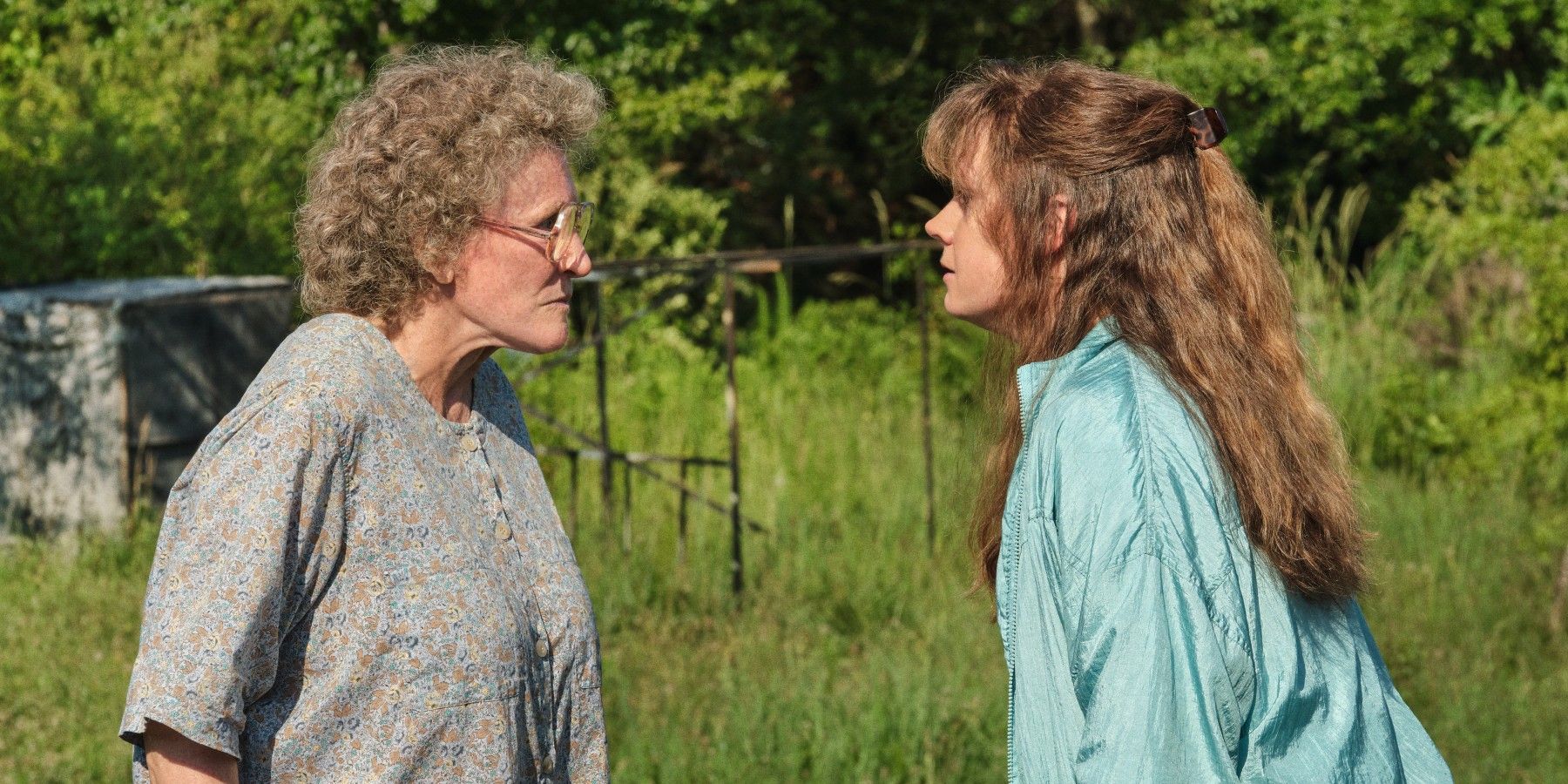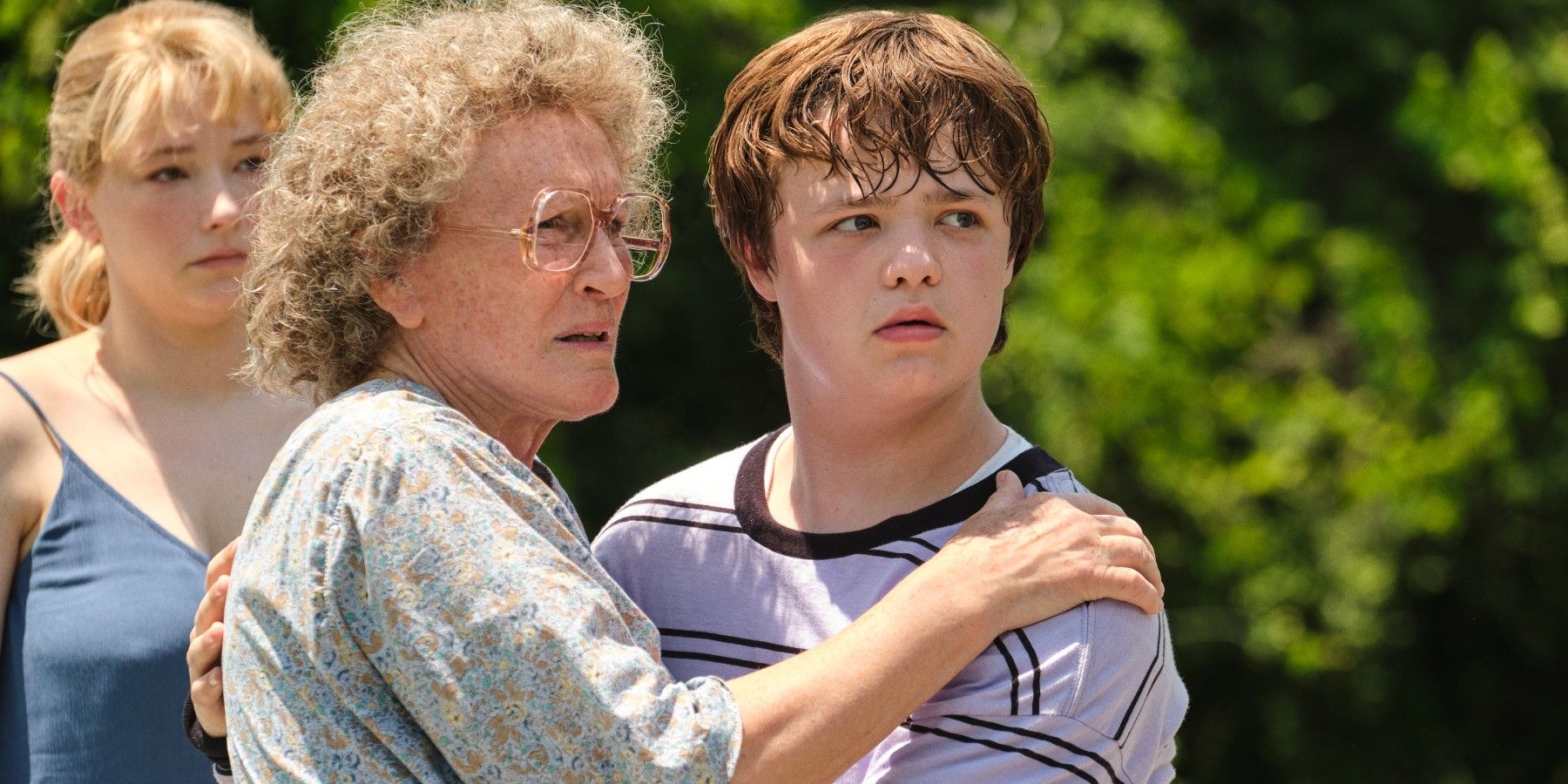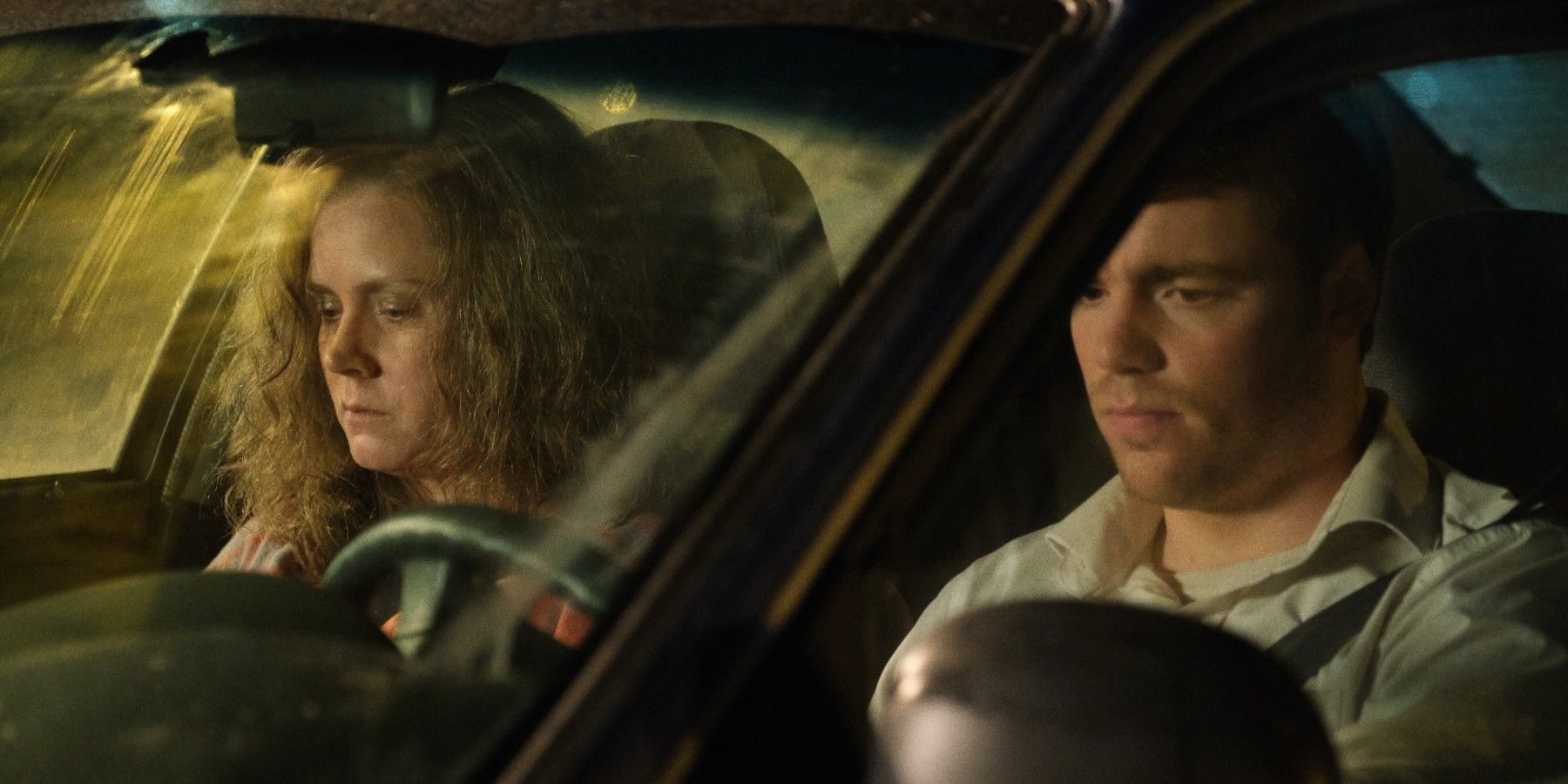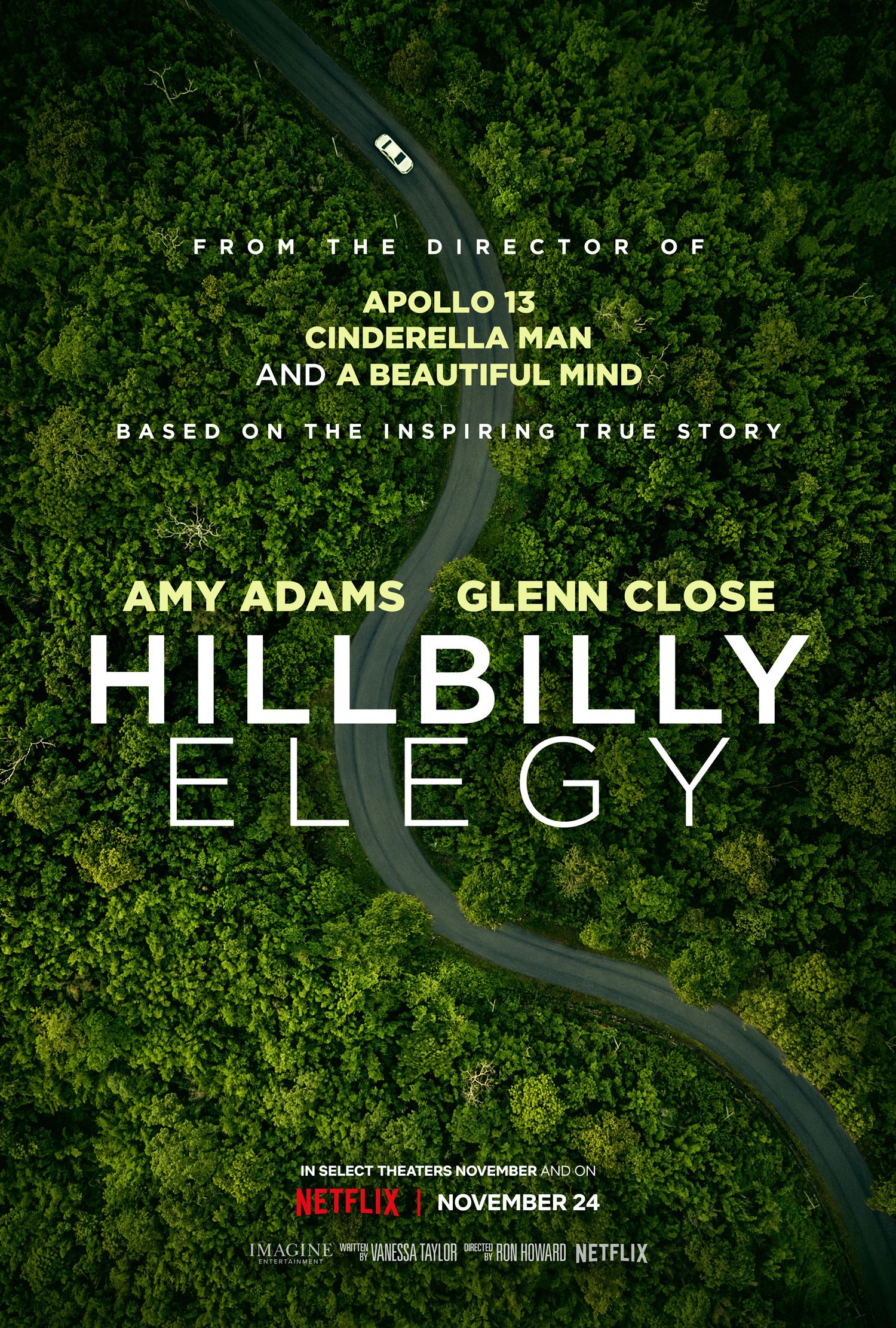There are certain movies that, before they even come out, are immediately singled out as awards contenders because of their source material and the faces behind and in front of the camera. Netflix's latest prestige flick, Hillbilly Elegy, definitely falls into this category. Based on the memoir written by J.D. Vance, this Ron Howard-directed film stirred up buzz when its first trailer debuted purely because of the performances put on by acting heavyweights Glenn Close and Amy Adams. The trailer might've made Hillbilly Elegy look like a winner, but the end result is something far more disappointing. There are solid performances to be found, but they aren't backed by a well-written story. Full of repetitive flashbacks and constant yelling, Hillbilly Elegy strives to be the next great domestic drama, but falls short in several ways.
J.D. Vance (Owen Asztalos as a child, Gabriel Basso as an adult) is a bright Yale student on the cusp of scoring his dream internship, the one that will give him a better shot in life. Before he can reach it, though, he gets a call from his sister Lindsay (Haley Bennett). Their mother Bev (Adams) has once again fallen prey to her drug addiction, thus pulling a reluctant J.D. back to the crumbling Appalachian hometown he grew up in. As J.D. grapples with how to best help his troubled mother, with whom he has a complicated relationship, he reflects on his tumultuous childhood, which saw him being raised at various points by his iron-willed Mamaw (Close). Try as he might, J.D. can't put the past behind him.
To be sure, Adams and Close are the standouts of Hillbilly Elegy. Both actresses are those perpetual nominees who, despite being incredibly talented, have never managed to win an Oscar. Many have wondered if Hillbilly Elegy could be it for either of them, and there's certainly a case to be made that it will be. Adams gives her all to the role of Bev, a struggling addict who has clear-eyed moments of genuine love for her children. Close is especially fierce as the hardened Mamaw, particularly in her moments with young J.D. There was never a question of whether these two would be excellent in this. The rest of the cast manages to turn in solid performances, with the double act of Asztalos and Basso carrying J.D. through his uphill-battle life in fine form.
Where Hillbilly Elegy struggles is just about everywhere else. Screenwriter Vanessa Taylor has employed a familiar storytelling tactic: Dual timelines. While the audience watches J.D. agonize over how to best take care of his mother in the present, they can also see into his childhood, which explains his conflicting emotions. However, the flashback scenes do very little to expand upon J.D.'s character, or even anyone else's. They are very repetitive; too often, the scenes result in someone yelling furiously and going through the same motions. Instead of connecting to the present in meaningful ways, the flashbacks of Hillbilly Elegy do little beyond reminding viewers that Bev is a troubled woman and J.D. had a terrible childhood.
Because of that, Hillbilly Elegy struggles to find the true humanity within its characters, even despite being based on real people. There are numerous negative stereotypes out there about those within the Appalachian region, from the slacker mindset to violent behaviors. Hillbilly Elegy could've provided the opportunity to dispel these stereotypes, or at least dig deeper beneath them. However, the film keeps its characters to mere stock figures. J.D. is the ambitious and far-reaching son, Bev is the addict mother, and Mamaw is the strict yet caring grandmother. Their personalities aren't developed much beyond that, save for some character traits that never really ring true. At one point, Hillbilly Elegy tries to allude to the violent tendencies within J.D. himself, but it never reaches beyond a pair of parallel sequences.
Netflix might've had hopes for Oscar gold with Hillbilly Elegy, but it doesn't seem likely that the accolades will stretch far beyond the performances. This domestic drama strives to pull sympathy and compassion from its audience, but it's missing one key aspect: The humanity. By keeping the main players as stock characters, Howard's Hillbilly Elegy can't escape the tired stereotypes. As a result, Hillbilly Elegy fails to reach the heights many expected it would based on the talent involved.
Hillbilly Elegy begins streaming on Netflix on November 24. It is 116 minutes long and rated R for language throughout, drug content, and some violence.




